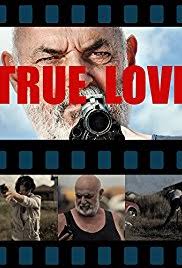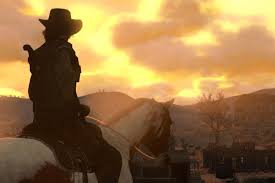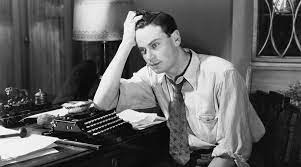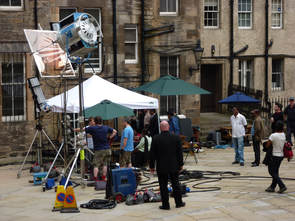|
In 2010 I wrote an anthology of stories on the theme of death, The Children’s Guide to Death. In 2011, I saw that Qpix – an offshoot of Screen Queensland – were taking submissions for short film scripts. I wrote one and sent it in. True Love was picked up by Ignition Films’ Simon Toy and director Robert Braiden, who turned it into a ten-minute film. In 2012, True Love won awards in Brisbane, New York and the Gold Coast for best story and best drama. Though I write scripts for television, I’d never written a short film script, but True Love lent itself to conversion. It’s a single scene, set in an industrial wasteland, where a battered wife tries, and fails, to bury the husband she’s just murdered. A man walking his dog comes across her, and the interaction between them changes their lives. Film Credits Watch full version here I was surprised and chuffed that the script was picked up, amused by the ‘payment deal’ where Qpix’s heroic and indefatigable Kerry O’Brian had to fetch his wallet to formally pay me the two dollars for the rights, and rapt to be able to workshop the script with L.A.-based writer, Richard Taylor. We swapped versions and tweaks by email and consulted by phone; lengthy calls that highlighted the differences in how I saw the story, and how he did. I was focused on character, particularly the man with the dog, and less so on the overall theme, which Richard, Simon and Robert instantly saw as a redemption story. I found it hard to pitch my understanding of the male character to the others. He is an extraordinary character based on two men I’ve met in real life – street fighters with nothing to prove. But hard men age, mellow, can have regrets, and therefore lend themselves to the possibility of redemption. Even in these ‘softer’ moments however, there is nothing soft about the men themselves; things are done because there is sufficient reason to do them. Emotion, what there is, is acknowledged as just another factor in the equation, and is not necessarily the prime directive. These men are dangerous. Adhere to reasonable, polite and respectful behaviour and you’ll probably be fine. Make a foolish mistake and you’ll probably rue the consequences in a hospital bed. So that was my focus; painting a character at a cusp, meeting another character at a cusp. Because I was so focused on this, I struggled sometimes with changes suggested by Richard that I felt weren’t consistent with my vision. Nevertheless, I decided early on that while the original story and script were mine, the film and expertise belonged to others to do as they wanted with it. It was my job to help them achieve their vision, not mine. It was also a valuable learning experience, and one where it was better for me to listen and accept than raise objections and obstacles. Finally, after five or so drafts of my simple story, Richard Taylor was done with me, and we parted on the phone in cheerful fashion – Richard to attend a star-packed party in Los Angeles, me to throw the ball for the dogs in the empty section next door before making dinner for the missus. Then the script went to Simon and Robert. I’d assumed that would be an end to drafts, but they workshopped their own take, and suggested and requested more tweaks. I had to balance my defence of dialogue and action against their need to be sufficiently satisfied with their script to the point that they could go ahead and shoot it. While we worked well together, and it was friendly all the way, I privately struggled with frustration that the script needed more work. But I kept to my role, which was to assist them and to learn everything I could about the process. Finally they were satisfied, and the shooting went ahead over a single weekend in a graveyard of old Queenslander houses, perched on rusting scaffolding; windows winking with fallen blinds, doors sagging with rust and disuse. I visited the location for a few hours to watch the processes of direction, acting and cinematography, and had the pleasure of hearing my words come to life. It’s a rollercoaster ride, but one worth considering if you have an interest in feature film scripts. You will learn humility, and that the writer doesn’t always have the total grasp of his or her own concept. Sometimes it will be others that point out themes and issues you are blind to.
I'd encourage early scripts to be written as low-budget as possible. There is no money in short-film making, so the story and core idea it’s based around, needs to be simple and powerful – a fresh twist on a familiar theme.
1 Comment
|
Reviews & stuff
Archives
July 2022
Categories
|





 RSS Feed
RSS Feed
